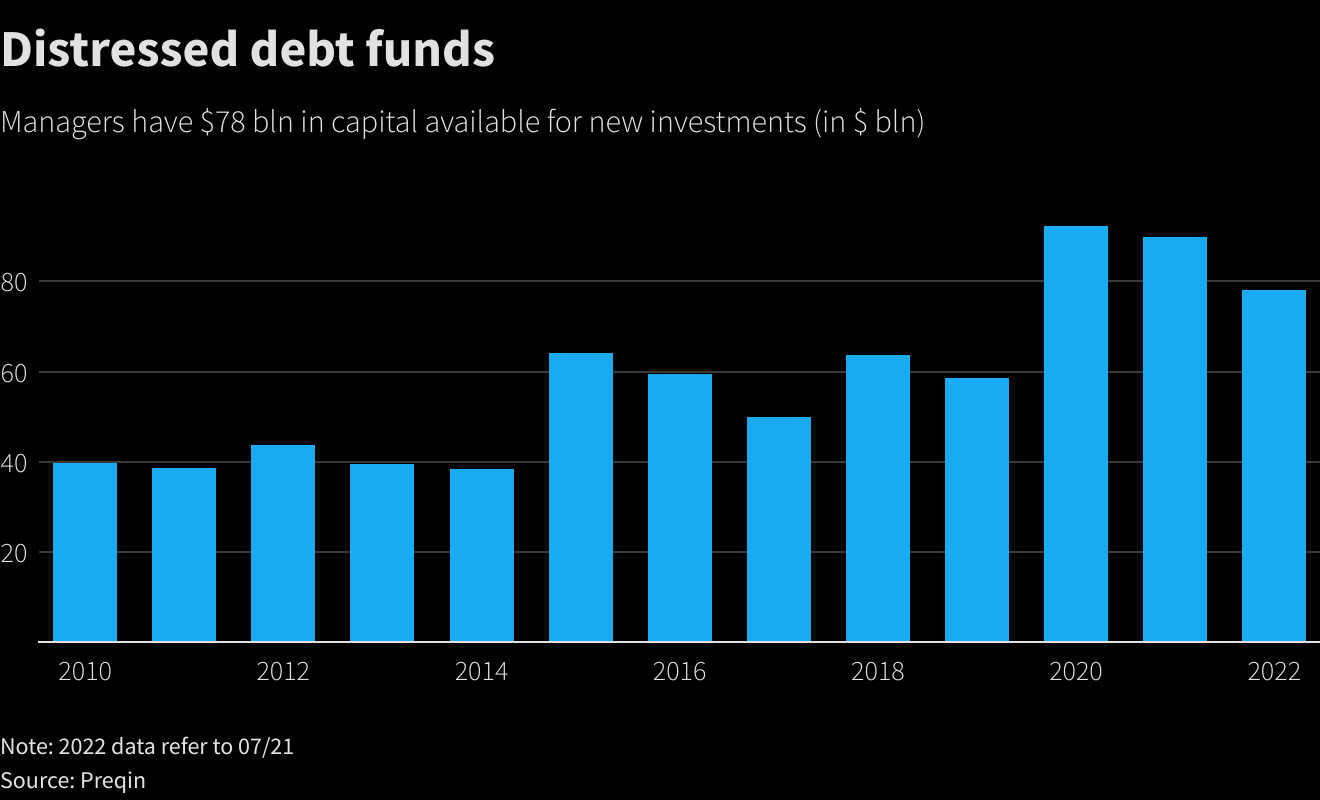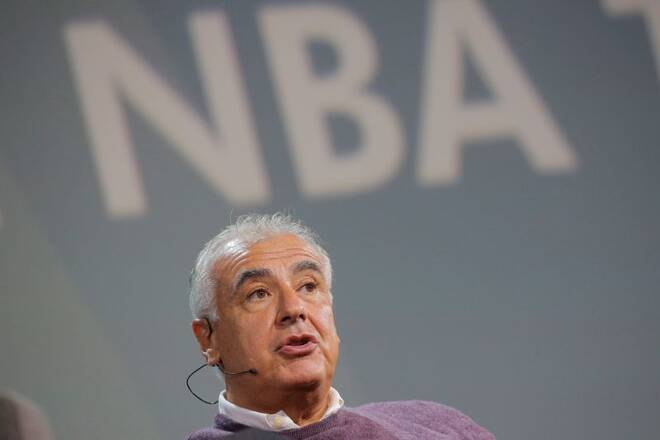Advertisement
Advertisement
Betting on a recession, U.S. distressed debt funds seek fresh capital
By:
By Carolina Mandl and Davide Barbuscia NEW YORK (Reuters) - Several U.S. distressed debt asset managers are in fundraising talks with investors to boost their firepower, anticipating that a recession will create more opportunities to snap up and profit off troubled companies' debt, according to multiple sources.
By Carolina Mandl and Davide Barbuscia
NEW YORK (Reuters) – Several U.S. distressed debt asset managers are in fundraising talks with investors to boost their firepower, anticipating that a recession will create more opportunities to snap up and profit off troubled companies’ debt, according to multiple sources. Investment firms including Oaktree Capital Management, GoldenTree Asset Management, Monarch Alternative Capital and Avenue Capital Group, in recent weeks began marketing their plans to institutional investors such as pension funds and endowments, according to eight investors familiar with the matter.
“There are lots of people who anticipate we’re headed into a recession and think we should be opportunistic and get in front of this and try and raise the capital now so that we have it in place if and when things get really, really bad,” said one.
Distressed debt investors buy troubled companies’ debt at discounted prices, expecting to profit if the company recovers, or, if it files for bankruptcy protection, that they can take control of the company.
The funds’ capital-raising efforts were previously unreported. Some investors, though, are skeptical that enough suitable targets exist. They doubt a recession will dramatically boost record-low corporate defaults, especially after large companies fared much better than expected during COVID-19 pandemic shutdowns.
Currently, around $78 billion committed to distressed investments globally are unallocated, according data provider Preqin.

Distressed funds returned 15.6% last year compared with 10.2% for the broader hedge fund market, and in 2020 they were in line with the industry, with gains of 11.8%, HFR data shows.
To entice investors, some asset managers are offering “capital call” structures whereby investors hand over their cash and start paying management fees only when a target is identified, said two of the sources, all of whom wished to remain anonymous because the talks are private.
“Distressed funds are looking for assets across the board, from debt, to crypto and real estate,” said Paul Foley, a partner and chair of the investment management practice at law firm Akerman.
Monarch, Avenue and GoldenTree, which specialize in distressed debt and respectively manage around $9.6 billion, $11.6 billion and $47 billion, declined to comment.
Oaktree, which has $164 billion in assets under management, also declined to comment. Its latest fundraising efforts come less than a year after it raised a $16 billion opportunistic credit fund.
Default risk
Default rates on U.S. junk bonds are at historic lows of around 1%, but in the event of a recession next year, that percentage could climb to 5% by the end of 2023 and peak at 10.3% in 2024, according to Deutsche Bank analysts. S&P Global Ratings’ U.S. “distress ratio” – a measure of risk in the bond market which tends to anticipate movements in U.S. default rates – jumped from 4.3% in June to 9.2% in July, its highest level since October 2020.
“Historically, corporate default rates are lagging indicators, they almost always go above 6% when you have a recession, but it typically happens well after the recession has started,” said Tom Joyce, capital markets strategist at MUFG in New York.
With mixed economic data, economists are divided over whether the United States is on the brink of recession, although the uncertain outlook is driving tighter financing conditions.
High-yield bond issuance in the first half of this year was down 75% and investment-grade bond issuance was down over 13%, according to Dealogic.
With corporate borrowing costs rising, BlackRock has been raising money for a fund that would provide financing to borrowers that cannot access traditional debt markets, two sources said. BlackRock Inc, the world’s largest asset manager, declined to comment.
“A lot of people are looking at raising distressed pools of capital,” said one of the sources. Conversations have been ongoing for the past quarter amid growing recession fears but “accelerated a lot in the last month or two,” the source said.
Skepticism
Still, some investors remain skeptical. They point out that while credit spreads, the premium investors demand to hold corporate debt rather than less risky government bonds, have widened, they are nowhere near previous downturns.
Distressed debt fundraising activity has been slow this year, with just two funds raising $1.3 billion through July, compared with $40 billion for the whole of last year and $45 billion for 2020, according to Preqin.
“While certain debt levels may increase, corporate balance sheets are very strong, as well as bank capital ratios,” said the chief investment officer of an asset investment firm.
The founder of a fund-of-funds firm said he will put money into distressed funds only when delinquency rates start to rise.
“Default cycles tend to be 18 to 36 months long, so I’m not too worried about missing the first six months of that cycle,” he said.
(Reporting by Carolina Mandl and Davide Barbuscia in New York; Editing by Michelle Price and Matthew Lewis)
About the Author
Reuterscontributor
Reuters, the news and media division of Thomson Reuters, is the world’s largest international multimedia news provider reaching more than one billion people every day. Reuters provides trusted business, financial, national, and international news to professionals via Thomson Reuters desktops, the world's media organizations, and directly to consumers at Reuters.com and via Reuters TV. Learn more about Thomson Reuters products:
Did you find this article useful?
Latest news and analysis
Advertisement
